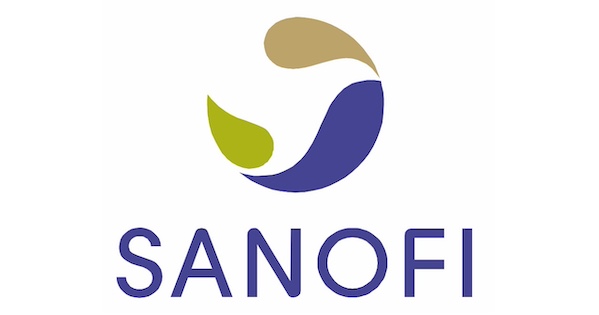Beyfortus® Approved in China for the Prevention of Respiratory Syncytial Virus Infections in Infants
January 4, 2024
Source: drugdu
 299
299

On January 2, 2024, AstraZeneca and Sanofi announced that the long-acting monoclonal antibody Beyfortus® (Nirsevimab/nisevizumab) has been officially approved for marketing by the State Drug Administration of China (SDA) for the prevention of Lower Respiratory Tract Infections (LRTIs) caused by Respiratory Syncytial Virus (RSV) in newborns and infants. The drug is indicated for newborns and infants who are entering or born during the first season of RSV infection. Nisevizumab is expected to be available in China during the 2024-2025 RSV infection season.
Nisevizumab is the first and only* approved prophylaxis in China to protect the broader infant population against RSV infection, covering healthy term infants, preterm infants, and infants vulnerable to serious RSV infection due to specific health conditions. Nisevizumab was approved in China based on the results of three pivotal clinical trials and the Chinese clinical development program. For all clinical trial endpoints, a single injection of nisevizumab demonstrated consistent efficacy against lower respiratory tract disease caused by respiratory syncytial virus, with sustained protection for five months, a typical season of RSV infection.
RSV is a common and highly contagious seasonal virus. It is the most common cause of lower respiratory tract infections (e.g., capillary bronchiolitis and pneumonia) in infants, as well as one of the leading causes of hospitalization, and the majority of hospitalizations due to RSV are in healthy infants born at term. [6] Our country is one of the countries with high prevalence of RSV epidemic worldwide. [7]
Prof. Hanmin Liu, President of West China Second Hospital of Sichuan University and principal investigator (PI) of the Chinese phase III clinical trial of nisibizumab, said, "There is no specific treatment for respiratory syncytial virus disease in infants, and the effects of severe syncytial virus infection in infancy can be long-lasting, making prevention the key to protecting infants. Nisevizumab, as an innovative long-acting monoclonal antibody, can protect infants through the respiratory syncytial virus infection season with a single injection. This approval in China will not only reduce the burden of disease due to syncytial virus infection for children and their families, but is also expected to reduce the burden on the pediatric healthcare system due to respiratory diseases, which will contribute significantly to the prevention and control of syncytial virus in China."
Iskra Reic, Global Executive Vice President, Head of Vaccines, Antibodies and Autoimmunity, AstraZeneca, said, "Nisevizumab will bring the first prevention against severe respiratory diseases caused by respiratory syncytial virus to infants in China. Nisevizumab is the result of scientific innovation that demonstrates AstraZeneca's continued leadership in meeting the unmet medical needs of the most vulnerable populations and reducing the burden on healthcare systems. We look forward to being able to offer nisevizumab in China from the 2024-2025 RSV infection season."
Minglong Lai, General Manager of AstraZeneca China, said, "AstraZeneca has been deeply engaged in China for more than 30 years, and nisevizumab fills a gap in the field of respiratory syncytial virus prevention for newborns and infants in China, which is of landmark significance in protecting the health of Chinese infants. The approval of nisevizumab will provide an 'immune umbrella' for newborns and infants in China during the first season of RSV infection in their lives, which once again confirms AstraZeneca's unchanging commitment to 'care for children's health through a deep commitment to the field of pediatrics'. In the future, we will continue to accelerate our R&D and innovation to further enrich our product pipeline, to meet the unmet needs of China's vulnerable populations, and to work together with like-minded partners to help realize the goal of 'Healthy China 2030' as soon as possible."
Nisevizumab was approved in the European Union in October 2022 for the prevention of RSV-induced lower respiratory tract disease in newborns and infants during the first season of RSV infection. Subsequently, in July 2023, nisevizumab was approved by the U.S. Food and Drug Administration (FDA) based on the unanimous recommendation of the Antimicrobial Drugs Advisory Committee (ADAC). Currently, marketing applications for nisevizumab in Japan and several other markets are also under review.
https://www.prnasia.com/story/432595-1.shtml
By editorRead more on
- Phase III Clinical Trial of Recombinant Staphylococcus Aureus Vaccine Progressing Normality January 21, 2026
- Its drug marketing application for injectable iza-bren has been accepted January 21, 2026
- Kain Technology withdrew a drug registration application, resulting in a profit reduction of 111 million yuan in 2025 January 21, 2026
- Received Notice of Approval for Drug Clinical Trial January 21, 2026
- Breaking news! AstraZeneca to be delisted from Nasdaq. January 21, 2026
your submission has already been received.
OK
Subscribe
Please enter a valid Email address!
Submit
The most relevant industry news & insight will be sent to you every two weeks.



